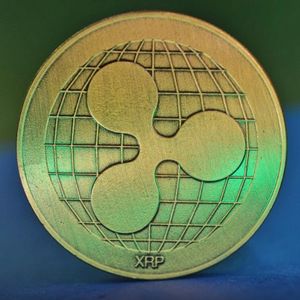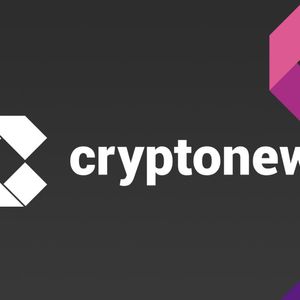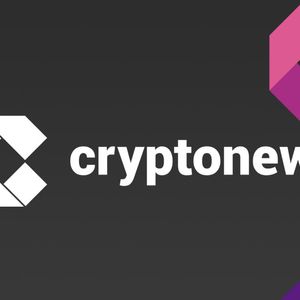BitcoinWorld Unlocking the Future: Uniswap Price Prediction 2025-2030 and UNI Token’s Investment Potential Are you looking to navigate the dynamic world of cryptocurrencies and understand the potential trajectory of one of its pioneering platforms? The realm of Decentralized Finance (DeFi) has reshaped how we perceive financial services, and at its heart lies Uniswap, a decentralized exchange that has become a cornerstone of this revolution. This comprehensive guide delves into the Uniswap Price Prediction for 2025, 2026, and extending all the way to 2030, offering a detailed crypto market analysis to help you determine if Uniswap is a good investment for your portfolio. We’ll explore the factors driving its value, historical performance, and what the future might hold for the UNI token. What is Uniswap (UNI) and Why Does it Matter? At its core, Uniswap is a decentralized exchange (DEX) protocol that facilitates automated trading of ERC-20 tokens on the Ethereum blockchain . Unlike traditional exchanges that rely on order books and intermediaries, Uniswap uses an Automated Market Maker (AMM) model. This innovative approach allows users to trade cryptocurrencies directly from their wallets, without the need for a central authority. It’s a game-changer because: Accessibility: Anyone with an Ethereum wallet can use Uniswap. Decentralization: No single entity controls the exchange, reducing censorship risk. Liquidity Provision: Users can earn fees by supplying liquidity to trading pools. Transparency: All transactions are recorded on the public Ethereum blockchain. The native governance token of the Uniswap protocol is UNI. Holders of UNI have the power to vote on key proposals that shape the future development and direction of the platform, making it a truly community-governed ecosystem. Understanding the fundamental utility and governance model of UNI is crucial when considering any Uniswap Price Prediction. Understanding Uniswap’s Role in Decentralized Finance (DeFi) Uniswap isn’t just a trading platform; it’s a foundational pillar of the broader Decentralized Finance (DeFi) ecosystem. Its AMM model, which relies on liquidity pools funded by users, revolutionized how decentralized exchanges operate. Here’s how it works and why it’s vital for DeFi: Liquidity Pools: Instead of buyers and sellers, Uniswap uses pools of tokens. Users (liquidity providers) deposit an equivalent value of two tokens into a pool, earning a portion of the trading fees generated in that pool. Automated Market Making: A mathematical formula automatically sets the price of assets based on the ratio of tokens in the pool, ensuring continuous liquidity for trades. Innovation Catalyst: Uniswap’s success inspired countless other DEXs and DeFi protocols, fostering a vibrant and competitive landscape. Permissionless Innovation: Developers can build on top of Uniswap, integrating its liquidity and trading functionalities into new applications, further expanding the DeFi frontier. The continued growth and innovation within Decentralized Finance directly impact Uniswap’s utility and, by extension, the UNI Token Price. As DeFi matures, so too does the potential for Uniswap to solidify its position as a leading decentralized exchange. Factors Influencing Uniswap Price Prediction: What Drives Value? Predicting cryptocurrency prices is inherently complex, and a Uniswap Price Prediction is no exception. Several critical factors influence the UNI token’s value, making it susceptible to both rapid gains and significant corrections. Understanding these drivers is key to forming an informed opinion: Overall Crypto Market Sentiment: The broader market’s health, particularly Bitcoin’s performance, significantly impacts altcoins like UNI. A bullish market often lifts all boats. DeFi Adoption and Growth: As more users and institutions engage with Decentralized Finance, Uniswap’s trading volumes and liquidity will likely increase, positively affecting its price. Protocol Upgrades and Innovation: Future versions of Uniswap (e.g., Uniswap V3, V4) introducing new features, improved capital efficiency, or reduced fees could boost demand for UNI. Competition from Other DEXs: The DeFi space is competitive. New or existing DEXs offering superior features, lower fees, or better user experience could challenge Uniswap’s dominance. Regulatory Landscape: Evolving regulations globally for cryptocurrencies and DeFi could impact Uniswap’s operations and user base. Tokenomics and Governance: Changes in UNI’s tokenomics (e.g., fee switches, staking mechanisms) or significant governance proposals can influence investor sentiment. Liquidity and Trading Volume: Higher liquidity and consistent trading volume on the platform indicate strong user engagement and utility, which are positive for the UNI Token Price. Monitoring these factors is essential for anyone interested in the future Uniswap Price Prediction. Historical Performance of UNI Token Price: A Look Back Before peering into the future, it’s beneficial to examine the historical performance of the UNI Token Price. Launched in September 2020 with an airdrop to past users, UNI quickly established itself as a significant player. Its journey has been marked by periods of explosive growth, mirroring the broader crypto bull runs, and subsequent corrections. For instance, during the 2021 bull market, UNI experienced substantial price appreciation, reaching its all-time high. This surge was driven by massive growth in DeFi adoption, increased trading volumes on the Uniswap protocol, and strong investor confidence in decentralized solutions. However, like many cryptocurrencies, UNI has also faced significant downturns during bear markets, demonstrating its volatility. Key takeaways from its history include: High Volatility: UNI’s price can fluctuate dramatically, offering both high reward potential and significant risk. Correlation with DeFi Growth: Its price often moves in tandem with the overall health and growth of the Decentralized Finance sector. Impact of Major Upgrades: Past protocol upgrades have often acted as catalysts for price movements. Understanding these historical patterns provides context but does not guarantee future results for the Uniswap Price Prediction. Uniswap Price Prediction 2025: Short-Term Outlook As we look towards the Uniswap Price Prediction for 2025, several factors suggest a potentially bullish outlook, though caution is always advised. The crypto market operates in cycles, and many analysts anticipate a recovery or sustained growth phase following recent market adjustments. By 2025, we could see: Continued DeFi Maturation: Increased institutional adoption and user-friendly interfaces could bring more participants into Decentralized Finance, benefiting Uniswap. Protocol Enhancements: Further development and deployment of Uniswap V4, or subsequent iterations, could introduce features that significantly improve capital efficiency, reduce gas fees, or expand functionality, attracting more users and liquidity. Evolving Regulatory Clarity: Greater clarity from global regulators, if favorable, could reduce uncertainty and encourage broader mainstream adoption of decentralized exchanges. Market Recovery: A strong rebound in the overall crypto market, particularly Bitcoin and Ethereum, would likely provide a significant tailwind for the UNI Token Price. Conservative estimates for the UNI Token Price in 2025 often range from $15 to $30 , assuming a moderately bullish market and continued innovation. More optimistic scenarios, contingent on widespread DeFi adoption and a robust bull run, could see UNI potentially test higher resistance levels, possibly reaching $40-$50 or even surpassing its previous all-time high. However, these are projections and depend heavily on market conditions. Uniswap Price Prediction 2026-2030: The Long-Term Vision Extending our gaze to the Uniswap Price Prediction for 2026-2030 requires a broader perspective, considering the long-term trends in technology, finance, and global adoption. Over this period, the potential for Decentralized Finance to integrate further into mainstream finance is significant, and Uniswap is well-positioned to benefit. For the years 2026-2030 , several scenarios can be envisioned for the UNI Token Price: Base Case (Moderate Growth): If DeFi continues its steady, organic growth, with Uniswap maintaining its market share and incrementally improving its protocol, UNI could see gradual appreciation. Prices might stabilize in the $50-$100 range, reflecting its established utility and governance role. Bullish Case (Widespread Adoption): In a scenario where Decentralized Finance achieves mass adoption, becoming a significant part of the global financial infrastructure, Uniswap’s role as a primary liquidity hub would be immense. With potential integrations into traditional finance and robust regulatory frameworks, the UNI Token Price could soar, potentially reaching $150-$300+ . This would be driven by exponential increases in trading volume, liquidity, and the value captured by the protocol. Bearish Case (Stagnation/Competition): Conversely, if Uniswap fails to innovate, loses market share to competitors, or faces severe regulatory headwinds, its growth could stagnate. In such a scenario, the UNI Token Price might struggle to maintain current levels, potentially falling back to lower ranges (e.g., $5-$15 ). The long-term Uniswap Price Prediction is heavily dependent on the evolution of the DeFi landscape, Uniswap’s ability to adapt and innovate, and the overall macroeconomic environment. It’s a testament to the potential of decentralized technology, but also a reminder of the inherent risks. Is Uniswap a Good Investment? Weighing the Pros and Cons The question of ‘Is Uniswap a good investment?’ is one that every potential investor must consider carefully. There are compelling arguments for its potential, but also significant risks that cannot be ignored. Potential Benefits of a Uniswap Investment: Pioneer in DeFi: Uniswap is a well-established, first-mover in the decentralized exchange space, giving it a strong brand and network effect. Decentralization and Transparency: Its trustless nature and on-chain transparency appeal to a growing segment of users seeking alternatives to centralized finance. Strong Community and Governance: The UNI token enables community governance, fostering a dedicated base of stakeholders invested in its success. Continuous Innovation: Uniswap Labs, the development team behind the protocol, has a track record of innovation (V1, V2, V3, and upcoming V4). Liquidity Hub: It remains one of the largest liquidity providers in the DeFi ecosystem, attracting more traders and liquidity providers. Challenges and Risks for a Uniswap Investment: Regulatory Uncertainty: The regulatory landscape for DeFi is still evolving, posing potential challenges to decentralized exchanges. Competition: The DEX market is highly competitive, with numerous protocols vying for market share. Technical Risks: Smart contract vulnerabilities, though rare in mature protocols like Uniswap, always pose a risk in DeFi. Gas Fees: Operating on the Ethereum blockchain, Uniswap can be subject to high gas fees during periods of network congestion, impacting smaller traders. Market Volatility: Like all cryptocurrencies, UNI is subject to extreme price volatility. Ultimately, whether Uniswap is a good investment depends on your risk tolerance, investment horizon, and belief in the long-term vision of Decentralized Finance. Crypto Market Analysis: A Broader Perspective for UNI A comprehensive Crypto Market Analysis is indispensable when evaluating the future of UNI. The performance of Uniswap and the UNI Token Price is not isolated; it is deeply intertwined with the broader trends and sentiments within the cryptocurrency ecosystem. Here’s how macro crypto trends impact Uniswap: Bitcoin Dominance: Bitcoin often acts as the market leader. A strong Bitcoin bull run typically creates an ‘altcoin season,’ where capital flows into other cryptocurrencies, including UNI. Conversely, Bitcoin corrections can drag down the entire market. Ethereum’s Performance: As Uniswap is built on Ethereum, the health and scalability of the Ethereum network are crucial. Upgrades like Ethereum 2.0 (now the Merge and future developments like sharding) aiming to improve scalability and reduce transaction costs could significantly benefit Uniswap’s user experience and adoption. Institutional Adoption: Increased interest and investment from traditional financial institutions into crypto can inject substantial capital into the market, benefiting established projects like Uniswap. Macroeconomic Factors: Global economic conditions, interest rates, inflation, and geopolitical events can all influence investor sentiment towards risk assets like cryptocurrencies. Technological Advancements: The emergence of new blockchain technologies or Layer 2 scaling solutions could either enhance Uniswap’s capabilities or introduce new competitors. Keeping an eye on these overarching market dynamics is crucial for any informed Uniswap Investment decision. The interconnectedness of the crypto world means that no asset exists in a vacuum. Actionable Insights for Potential Investors Considering a Uniswap Investment? Here are some actionable insights to guide your decision-making process: Do Your Own Research (DYOR): Never invest based solely on predictions. Deeply understand Uniswap’s technology, use cases, team, and community. Understand Your Risk Tolerance: Cryptocurrencies are volatile. Only invest what you are prepared to lose. Diversify Your Portfolio: Don’t put all your eggs in one basket. Spread your investments across various assets to mitigate risk. Monitor Market Trends: Stay updated on the latest developments in DeFi, Ethereum, and the broader crypto market. Tools for crypto market analysis can be very helpful. Consider Long-Term vs. Short-Term: Decide if you are looking for short-term gains or believe in Uniswap’s long-term potential as a foundational DeFi protocol. Long-term holding often helps weather market volatility. Explore Liquidity Provision: If you understand the risks of impermanent loss, consider providing liquidity to Uniswap pools to earn trading fees, which can be another way to engage with the protocol. These insights, combined with a thorough understanding of the Uniswap Price Prediction and its underlying fundamentals, can help you make a more informed investment choice. Frequently Asked Questions (FAQs) About Uniswap and UNI Token Q1: What is the primary function of the UNI token? The UNI token primarily serves as the governance token for the Uniswap protocol . Holders can vote on proposals, protocol changes, and allocate treasury funds, giving them a say in the future direction of the decentralized exchange. Q2: How does Uniswap differ from traditional exchanges? Uniswap is a decentralized exchange (DEX) that uses an Automated Market Maker (AMM) model, relying on liquidity pools instead of order books. This means trades happen directly between users and the liquidity pool, without a central intermediary. Traditional exchanges like Coinbase or Binance are centralized, meaning they hold user funds and facilitate trades through order books, acting as intermediaries. Q3: What are the risks of investing in UNI? Key risks include market volatility, potential regulatory changes affecting DeFi , competition from other DEXs, and technical risks associated with smart contracts. While Uniswap is a mature protocol, all crypto investments carry inherent risks. Q4: Can Uniswap scale to handle more users? Uniswap’s scalability is largely tied to the Ethereum blockchain’s scalability. With the ongoing development of Ethereum 2.0 (now the Merge and future upgrades) and the increasing adoption of Layer 2 scaling solutions like Optimism and Polygon , Uniswap is continuously exploring ways to improve transaction speed and reduce costs for its users. Q5: Who created Uniswap? Uniswap was created by Hayden Adams , who founded Uniswap Labs , the company that develops the protocol. His vision was to create a truly decentralized and permissionless exchange. Q6: What is ‘impermanent loss’ in Uniswap? Impermanent loss is a temporary loss of funds experienced by a liquidity provider due to price changes of the assets in a liquidity pool. It occurs when the price ratio of deposited tokens changes from when they were deposited. While it’s called ‘impermanent,’ it can become permanent if the liquidity is withdrawn at a loss. Conclusion: Navigating the Future of Uniswap The journey through the Uniswap Price Prediction for 2025, 2026, and extending to 2030 reveals a compelling narrative of innovation, potential growth, and inherent risks. As a cornerstone of the Decentralized Finance ecosystem, Uniswap has demonstrated its resilience and ability to adapt in a rapidly evolving market. The UNI token’s future hinges on its continued ability to innovate, maintain its market leadership, and navigate the complex regulatory landscape. While expert predictions offer valuable insights, the ultimate decision of whether a Uniswap Investment aligns with your financial goals rests on your thorough research, understanding of market dynamics, and personal risk tolerance. The potential for significant returns is balanced by the volatility inherent in cryptocurrency markets. By staying informed, diversifying your portfolio, and understanding the core value proposition of Uniswap, you can make a more confident decision in this exciting frontier of finance. To learn more about the latest crypto market analysis trends, explore our article on key developments shaping Uniswap’s institutional adoption. This post Unlocking the Future: Uniswap Price Prediction 2025-2030 and UNI Token’s Investment Potential first appeared on BitcoinWorld .















